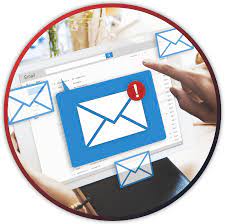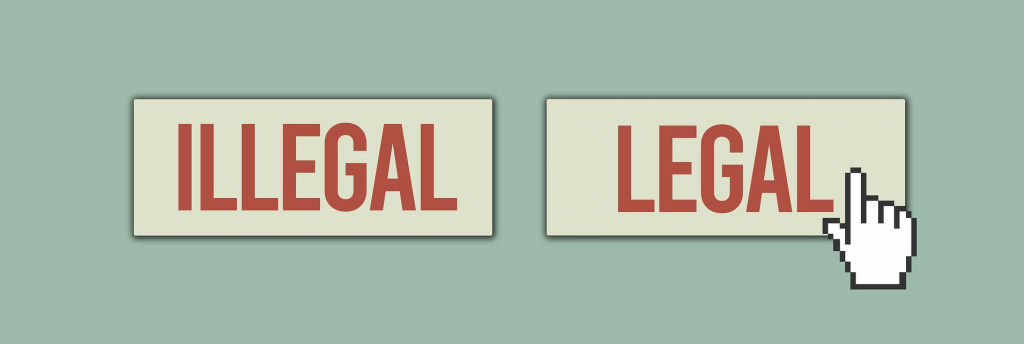
Are you looking to send an email without revealing your identity? Sending anonymous emails can be a useful tool for privacy, security, or simply for having some fun.
In this blog post, we’ll dive into the world of anonymous emailing – exploring the reasons behind it, the risks involved, and how you can go about crafting and sending your own discreet messages. So buckle up as we unravel the mysteries of sending emails incognito!
The Purpose of Sending Anonymous Emails
 Sending anonymous emails serves a variety of purposes, depending on the situation and individual needs.
Sending anonymous emails serves a variety of purposes, depending on the situation and individual needs.
One common reason is to protect one’s privacy and identity when communicating sensitive or confidential information. It can be particularly useful in situations where anonymity is crucial, such as whistleblowing or reporting illegal activities.
Another purpose of sending anonymous emails is to play pranks or practical jokes without being traced back to the sender. This can add an element of mystery and fun to interactions with friends or colleagues. Additionally, some people may use anonymous emails for market research or surveys to gather unbiased feedback without revealing their intentions.
In certain cases, individuals might resort to sending anonymous emails to express opinions or criticisms freely without fear of retaliation or judgment. This allows for open communication while maintaining a level of secrecy. The purpose of sending anonymous emails varies widely and can cater to different needs and circumstances.
Reasons for Wanting to Send an Anonymous Email
Sending an anonymous email can serve various purposes, some of which are legitimate while others may be more dubious.
One common reason for wanting to send an anonymous email is to protect one’s privacy and identity. In situations where sensitive information needs to be shared without revealing the sender’s personal details, sending an anonymous email can provide a sense of security.
Another reason people choose to send anonymous emails is for whistleblowing or reporting unethical behavior. By concealing their identity, individuals feel empowered to speak up against wrongdoing without fear of retaliation or exposure. This anonymity can encourage transparency and accountability in various settings.
Moreover, sending an anonymous email can also be a way to deliver feedback or criticism anonymously. Whether it’s offering constructive criticism without repercussions or expressing opinions that may not be well-received publicly, anonymity allows individuals to communicate honestly and openly.
Additionally, individuals might opt for sending anonymous emails when engaging in online activism or advocacy efforts. By masking their identity, activists can raise awareness about important issues without risking personal safety or facing backlash from opposing parties.
Risks and Precautions to Consider Before Sending an Anonymous Email
Before diving into sending anonymous emails, it’s crucial to understand the potential risks involved. One major risk is the possibility of your true identity being traced back through digital footprints or metadata left behind in the email. Hackers or malicious actors could exploit vulnerabilities in your anonymity, leading to privacy breaches or even legal consequences.
To safeguard yourself, consider using a reputable VPN service to hide your IP address and encrypt your internet connection. Additionally, avoid including any personal information that could inadvertently reveal your identity in the content of the email. Be wary of clicking on links or downloading attachments from unknown senders as they may contain malware designed to compromise your anonymity.
Taking precautions such as using secure networks, creating strong passwords for your anonymous email account, and regularly updating security software can help mitigate these risks. Remember, staying vigilant and informed about cybersecurity best practices is key when navigating the realm of anonymous communication online.
Best VPN for Emails
HideIPVPN offers a VPN service with military-grade encryption, and high-speed servers with unlimited bandwidth.
Our service comes with shared IP addresses so that your activity can never be tied to one particular user, further protecting your privacy.

We also offer DNS leak protection, a Kill Switch, the latest VPN protocols, and a guaranteed no-log policy.
Best VPN Deal! Get HideIPVPN for $2.7/mo!
Every purchase you make comes with a 30-day money-back guarantee.
Methods for Creating an Anonymous Email Address

When it comes to creating an anonymous email address, there are a few methods you can utilize to maintain your privacy and anonymity online. One common method is using a secure email service that prioritizes user confidentiality. These services often offer features like end-to-end encryption and do not require personal information for sign-up.
Another option is utilizing disposable or temporary email addresses. These types of emails are handy for one-time use or situations where you don’t want to reveal your real identity. Websites offering disposable email services generate random email addresses that expire after a certain period.
You can also consider using a Virtual Private Network (VPN) when creating an anonymous email address. A VPN helps mask your IP address and encrypts your internet connection, adding an extra layer of security and anonymity while accessing the web.
Additionally, some platforms allow you to create aliases or pseudonyms instead of using your real name when setting up an account. This way, you can communicate without revealing your true identity while still maintaining communication with others securely.
Tips for Composing and Sending an Anonymous Email
When composing an anonymous email, remember to keep your message clear and concise. Avoid including any personal information or details that could potentially reveal your identity. Be mindful of the language you use; try to avoid phrases or expressions that might give away clues about who you are.
Consider using a secure email service or tool that offers additional layers of anonymity, such as encryption features. This can help protect your identity and ensure that your message remains confidential. Before sending the email, double-check all recipients’ addresses to prevent any accidental reveals.
If you need to attach files or documents, make sure they don’t contain any metadata that could be traced back to you. It’s essential to cover all tracks thoroughly when sending an anonymous email.
Additionally, consider using a virtual private network (VPN) for added security while accessing the internet during this process.
Be cautious with how you interact with the recipient after sending the anonymous email. Avoid engaging in conversations or activities that could potentially link back to you. Stay vigilant and maintain your anonymity throughout the entire communication process – it’s crucial for safeguarding your identity when sending anonymous emails.
Legal Implications of Sending Anonymous Emails

Sending anonymous emails may seem like a convenient way to communicate without revealing your identity, but it’s important to be aware of the potential legal implications. While anonymity can protect your privacy, it can also be misused for malicious purposes such as harassment, threats, or fraud.
It’s crucial to remember that just because you are hiding behind an anonymous email address doesn’t mean you are immune from the law. Depending on the content of the email and its intent, sending anonymous messages could violate laws related to cyberbullying, defamation, stalking, or even national security.
In some cases, authorities may trace back the origin of an anonymous email through digital forensics methods. If found guilty of illegal activities conducted through anonymous emails, individuals could face serious consequences including fines or imprisonment.
Before engaging in sending anonymous emails for any reason, make sure you understand the laws and regulations surrounding online communication in your jurisdiction. It’s always best to use anonymity responsibly and ethically to avoid running into legal trouble down the line.
Alternatives to Sending Anonymous Emails
If you’re exploring alternatives to sending anonymous emails, consider using encrypted messaging platforms like Signal or Telegram. These apps offer end-to-end encryption, ensuring your conversations remain private and secure.
Another option is to use disposable email addresses from services like Guerrilla Mail or Temp-Mail. These temporary accounts allow you to send and receive messages without revealing your identity.
For added anonymity, you can utilize a Virtual Private Network (VPN) to mask your IP address while browsing the web or sending emails. This extra layer of security helps protect your online activities from prying eyes.
Alternatively, if you need to share sensitive information securely, consider using password-protected files shared through secure cloud storage services like Dropbox or Google Drive. Encrypting your files adds an additional level of protection against unauthorized access.
By exploring these alternatives, you can enhance your privacy and security when communicating online without resorting solely to sending anonymous emails.
Conclusion
In today’s digital age, the ability to send anonymous emails can be a powerful tool for protecting your privacy and expressing yourself without revealing your identity. Whether you have legitimate reasons for anonymity or simply wish to maintain confidentiality, understanding the methods and risks associated with sending anonymous emails is essential.
By considering the purpose of sending anonymous emails, recognizing potential risks, exploring methods for creating an anonymous email address, and following tips for composing and sending such messages, you can navigate this process more effectively.
Remember that while sending anonymous emails can provide a sense of security, there are legal implications to consider. Always ensure that your actions comply with relevant laws and regulations to avoid any potential consequences.
If sending an anonymous email doesn’t align with your needs or values, explore alternative means of communication that prioritize transparency and honesty. Whether you choose to send an anonymous email or not, being mindful of the implications will empower you to make informed decisions in the digital realm.



